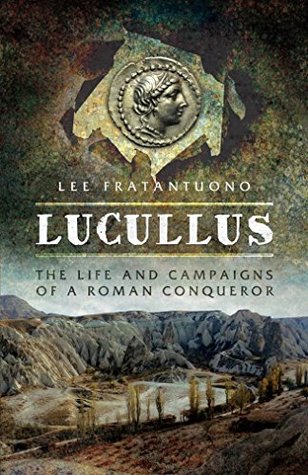Kindle Notes & Highlights
Read between
June 21 - July 12, 2023
he is among the most underappreciated. Both
A student of mine once commented that all she knew of Lucullus was the mention of him in Stanley Kubrick’s 1960 film Spartacus.
To study Lucullus is to appreciate better why the Republic collapsed, and also to investigate closely how and why Rome expanded its power so dramatically toward the East.
Educated young Romans would soon become familiar with the martial and adventure epics of the ancient Greeks (especially Homer), the great corpus of tragic verse and the mammoth histories of the wars between the Greeks and the Persians, and the city-states of Athens and Sparta.
Cicero credits Lucullus with having an especially gifted memory for the retention of facts and details, information that could be recalled at an instant for use in some interlocution or exchange of words.
For from Cyprus he certainly proceeded to Rhodes, the largest of the so-called Dodecanese islands – and another legendary place of literary associations (it was the home island of Apollonius of Rhodes, the third-century BC Greek epic poet who authored the Argonautica, a mythological epic in four books on the quest of Jason in search of the Golden Fleece).
The verdict of many modern scholars on Lucullus is that his excellence and ability in the field were not remotely matched by the warmth and affection that his rivals and peers enjoyed from their men.
distant Asia, he tempted Crassus to seek his own fortune against Parthia. Crassus would suffer defeat and death in 53 BC; Plutarch notes that Crassus would learn that Lucullus’ enemies had been defeated not because they were cowards, but because of how competent and bold Lucullus really was.
Crassus deeply entangled in Parthia, and with a record of failure – and Caesar with post mortem deification as perhaps his most lasting consolation for a daring political and military life. Pompey would face the most shameful end, treacherously murdered in Egypt in the wake of his defeat at Pharsalus in the great civil war against Caesar. It is perhaps interesting to note that Lucullus’ demise had more in common with the final days of his mentor Sulla than with any of his great rivals for military fame and political glory. Lucullus was an optimate politician
His failures, such as they were, reflected in part the hazards and structural problems of the very Republic he so dearly loved and cherished.


